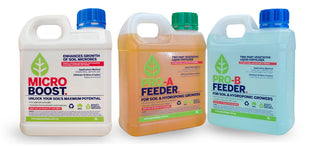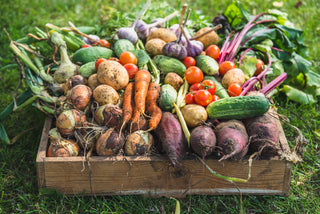| Myth 1: Carrots improve night vision significantly. |
While carrots contain vitamin A, they won’t drastically improve night vision; this myth started during WWII. |
| Myth 2: Organic vegetables are always more nutritious. |
Organic vegetables may have fewer pesticides but are not necessarily more nutritious than conventional ones. |
| Myth 3: Adding salt to water makes vegetables cook faster. |
Salt only seasons water, it doesn’t alter cooking speed. |
| Myth 4: You can't grow vegetables in small spaces. |
Many vegetables like lettuce, herbs, and spinach grow well in containers or urban settings. |
| Myth 5: You must rotate all vegetable crops every year. |
Crop rotation is beneficial but not required annually for all vegetables. Herbs and other crops can stay in place. |
| Myth 6: Tomatoes must be stored in the fridge. |
Storing tomatoes in the fridge diminishes flavor; it’s best to keep them at room temperature. |
| Myth 7: Green potatoes are safe to eat if you peel them. |
Green potatoes contain solanine, which is toxic. Even peeling won’t remove all toxins; discard green potatoes. |
| Myth 8: You can water plants at any time of the day. |
It's best to water in the morning to avoid plant stress and disease from overnight moisture. |
| Myth 9: All vegetables need full sun. |
Some vegetables like leafy greens thrive in partial shade, while others, like tomatoes, need full sun. |
| Myth 10: You can plant vegetables too close together. |
Intensive gardening techniques allow for close planting without harming crops if managed properly. |
| Myth 11: Peeling vegetables removes all nutrients. |
While peeling removes some fiber and nutrients, most of the nutrients are inside the vegetable. |
| Myth 12: Vegetables lose nutrients during freezing. |
Frozen vegetables can retain most of their nutrients and sometimes even have more than fresh ones depending on how they’re stored. |
| Myth 13: Spinach is the best source of iron. |
While spinach contains iron, it also has oxalates that limit iron absorption. Lentils and meat provide more bioavailable iron. |
| Myth 14: You need to fertilize vegetables every day. |
Over-fertilizing can harm plants. Most vegetables only need to be fertilized every few weeks, depending on soil quality. |
| Myth 15: Vegetables taste better when grown organically. |
Taste is subjective; there’s no scientific proof that organically grown vegetables always taste better than conventionally grown ones. |
| Myth 16: You can't grow vegetables indoors. |
Many vegetables like lettuce, tomatoes, and herbs can be grown indoors with proper lighting and care. |
| Myth 17: The bigger the vegetable, the better. |
Size doesn’t always indicate quality. Overgrown vegetables like zucchini or cucumbers can be tough and bitter. |
| Myth 18: You can't plant root vegetables in containers. |
Root vegetables like carrots, radishes, and beets can thrive in deep containers. |
| Myth 19: Fertilizers are harmful to vegetables. |
When used properly, fertilizers provide essential nutrients to vegetables and help them grow healthy. |
| Myth 20: All vegetables are safe for pets. |
Some vegetables like onions and garlic are toxic to pets. Always check before feeding vegetables to animals. |
| Myth 21: Eating too many carrots turns you orange. |
Excessive consumption of carrots can cause a harmless condition called carotenemia, which gives skin a yellow-orange hue. |
| Myth 22: You must soak beans before cooking them. |
Soaking beans can reduce cooking time, but it’s not strictly necessary. You can cook beans without soaking. |
| Myth 23: Sweet potatoes and yams are the same. |
Sweet potatoes and yams are two different plants with different textures and flavors. |
| Myth 24: Heirloom vegetables are more nutritious. |
Heirloom vegetables are prized for their flavor and uniqueness, but they are not always more nutritious than hybrid varieties. |
| Myth 25: Celery has negative calories. |
While celery is low in calories, the body doesn’t burn more calories digesting it than the calories it provides. |
| Myth 26: You should avoid nightshade vegetables if you have arthritis. |
There is no scientific evidence that nightshade vegetables like tomatoes and eggplants worsen arthritis symptoms. |
| Myth 27: Boiling vegetables destroys all their nutrients. |
While boiling can reduce some nutrients, it doesn’t destroy them all. Steaming and microwaving retain more nutrients. |
| Myth 28: You need to plant vegetables from seeds to get the best crop. |
Transplants from seedlings are often easier for beginner gardeners and can yield just as healthy crops. |
| Myth 29: Only big gardens produce enough vegetables. |
Even small raised beds or vertical gardens can produce a significant amount of vegetables in a limited space. |
| Myth 30: All vegetables must be washed with soap. |
Soap can leave harmful residues; rinsing vegetables with water is enough to remove most contaminants. |
| Myth 31: Watering every day is necessary for all vegetables. |
Overwatering can lead to root rot and poor plant health. It’s better to water deeply but less frequently. |
| Myth 32: Tomatoes and cucumbers can grow together. |
Although commonly planted together, tomatoes and cucumbers don’t make the best companions due to different water and nutrient needs. |
| Myth 33: You should plant vegetables in straight rows. |
Planting in rows is traditional, but many gardeners now use intensive planting methods like square foot gardening. |
| Myth 34: Kale is always the most nutrient-dense green. |
Kale is nutrient-rich, but other greens like spinach and Swiss chard can provide just as many nutrients. |
| Myth 35: You can't grow vegetables from kitchen scraps. |
Many vegetables, like green onions, celery, and lettuce, can be regrown from scraps placed in water. |
| Myth 36: All vegetables grow better with chemical fertilizers. |
Organic fertilizers like compost can be just as effective for vegetable growth as chemical fertilizers. |
| Myth 37: Vegetables must be grown in soil. |
Many vegetables can be grown hydroponically without soil. |
| Myth 38: Eggplant skins are bitter and should be peeled. |
Modern eggplant varieties have thinner, less bitter skins, making peeling unnecessary for most recipes. |
| Myth 39: Mulching vegetables will cause them to rot. |
Mulching helps retain moisture and reduce weeds without causing rot, as long as proper air circulation is maintained. |
| Myth 40: Sprouted potatoes are safe if you remove the sprouts. |
Potatoes that have sprouted may contain harmful toxins and should be discarded. |
| Myth 41: You can’t grow vegetables in poor soil. |
With the right amendments like compost and fertilizers, even poor soil can become suitable for vegetable growing. |
| Myth 42: You need to prune all vegetables. |
Not all vegetables need pruning; for example, determinate tomatoes and bush beans don’t benefit from pruning. |
| Myth 43: Purple vegetables are genetically modified. |
Purple varieties like purple carrots, cabbage, and cauliflower are natural and not genetically modified. |
| Myth 44: Cross-pollinated vegetables result in odd hybrids. |
Cross-pollination only affects the seeds and not the vegetables themselves, so you won’t see hybrid effects in the same season. |
| Myth 45: Planting too early will give you a head start. |
Planting vegetables before the soil is warm enough can lead to poor germination and growth. |
| Myth 46: Only fresh vegetables are good for health. |
Frozen vegetables retain most of their nutrients and are often a more convenient and affordable option. |
| Myth 47: Cucumbers and peppers must always be peeled. |
The skins of cucumbers and peppers are nutritious and edible, though you can peel them if you prefer a softer texture. |
| Myth 48: All hybrid vegetables are genetically modified. |
Hybridization is a natural process and doesn’t involve genetic modification. |
| Myth 49: Planting garlic next to vegetables repels all pests. |
Garlic helps repel some pests, but not all. It works best as part of a broader Integrated Pest Management (IPM) plan. |
| Myth 50: Lettuce and leafy greens should be planted in full sun. |
Leafy greens grow well in partial shade, and too much sun can cause them to bolt and become bitter. |





